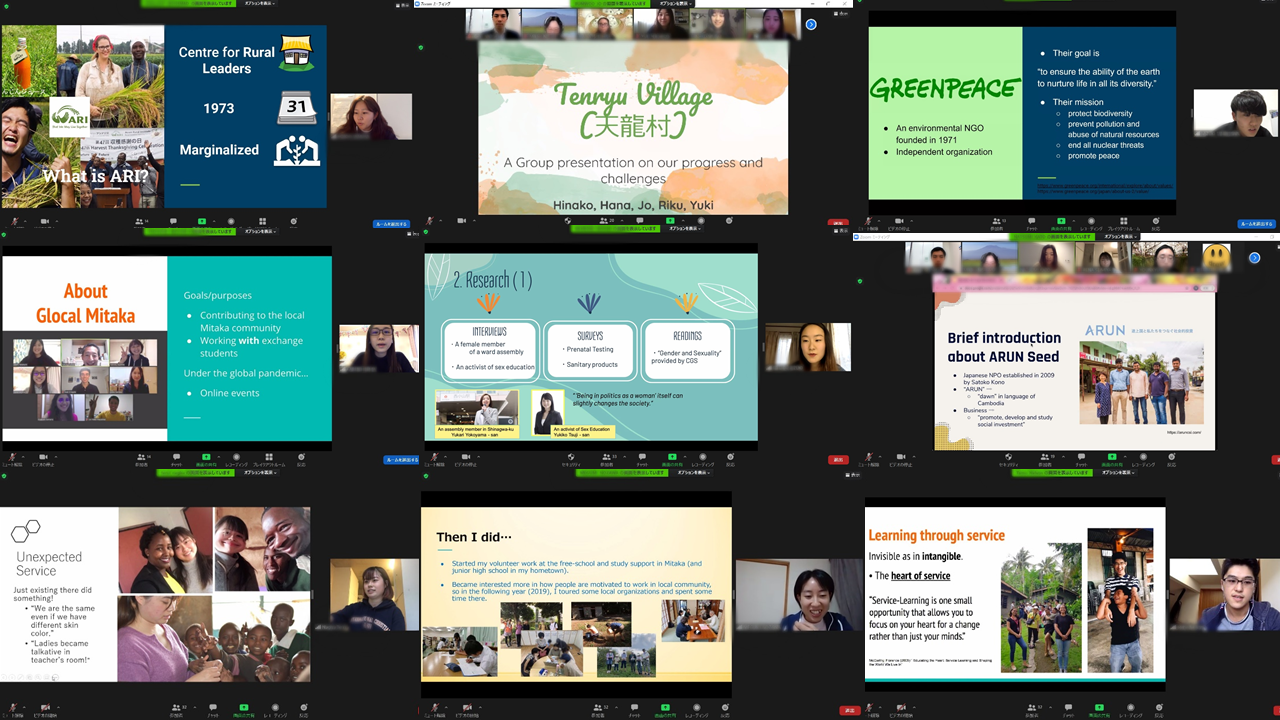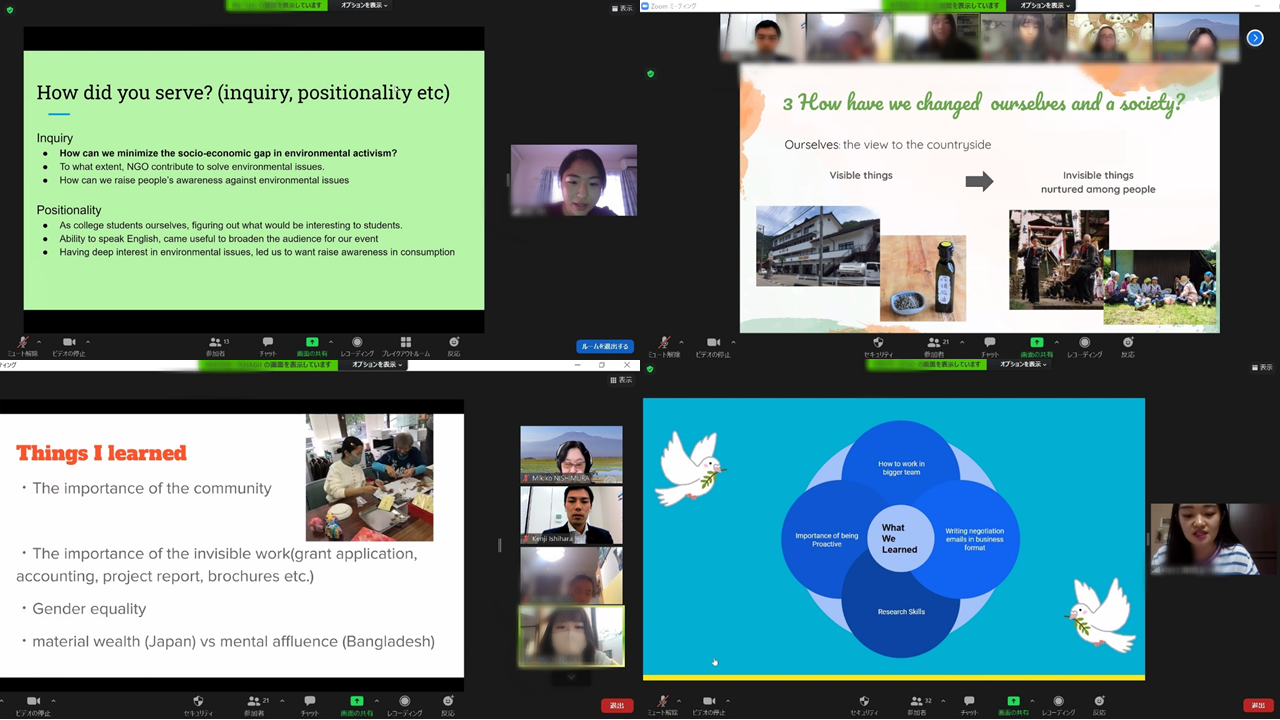Nov. 16, 2020
Online Classes and Remote Service Activities in the Autumn Term
The General Education: Service-Learning course in the Autumn Term was offered in English, and 24 students from various international backgrounds have registered. The first class was conducted as a hybrid class of face-to-face and online, and the rest of the course consisted of online lectures and online practicum (18 hours of service activities).
In the course, we had lectures of the essence of service-learning (SL), such as "inquiry" and "positionality," which are important factors for SL and also welcomed a variety of guest speakers. In the beginning of the course, students who have participated in the SL program in the past shared what they learned and what service-learning means to them, and one of their subsequent activities that led to their employment after graduation. In addition, we invited guests from "Glocal Mitaka", which is working on international exchange projects in Mitaka City, and "ACEF", which supports children in Bangladesh. The students deepened their understanding of the various activities of non-profit organizations, their current efforts to deal with the COVID-19 pandemic, and people who are working as non-profit organizations. At the end of the course, ICU faculty members from the Humanities, Natural Sciences, and Politics and International Relations gave students feedback on their learnings.
In the 18-hour service activities, students were divided into nine groups. The activity places are; Tenryu Village (depopulated and aging village), ACEF (educational support in Asia), ARUN (social investment in developing countries), Greenpeace (environmental NGO), Glocal Mitaka (international exchange projects in Mitaka), Asian Institute (training rural leaders from overseas), ICU Peace Research Institute, ICU Center for Gender Studies, and self-arranged host institution (local organization in Tokyo). Students engaged in translation works, researches, online event planning and management, and PR activities using SNSs.
Through the final presentations by students, we found that students applied their language skills to create materials and to manage events in English, and also their IT skills to use SNSs. Under the pandemic, the online practicum became possible at any time and any place. Through these activities, students seem to become aware of the importance of teamwork, initiative and communication by having inquiries and reflecting on their activities. Moreover, in their first experience of being involved in society as university students, they recognized what they can do as students in society (positionality) and how to interact with society, such as the "reciprocity" between service providers and recipients, which is different from one-way volunteer activities. We believe that this is not the end of the service-learning for students, but rather the continuous development of further learning in the future.
*Click on the images to enlarge.



